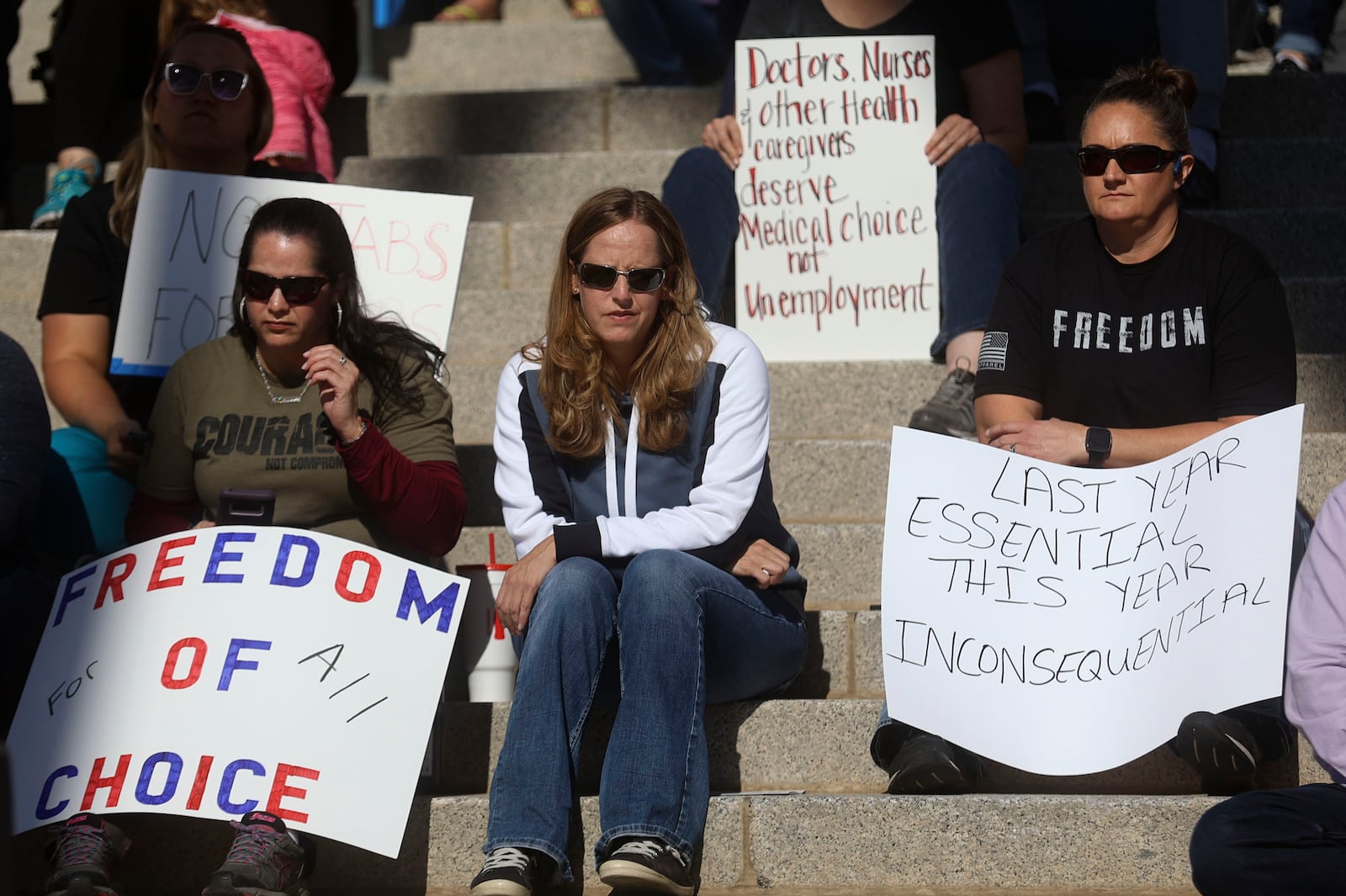The 5th U.S. Circuit Court of Appeals in New Orleans got it right last week when putting a hold on President Joe Biden’s mandate for businesses with more than 100 employees to require workers to receive a COVID-19 vaccination.
“The mandate is staggeringly broad,” Judge Kurt Engelhardt wrote for the court. It is, he said, “a one-size-fits-all sledgehammer that makes hardly any attempt to account for differences in workplaces (and workers).”
He added, in language that gets to the heart of the objections people in many states have expressed, “The public interest is also served by maintaining our constitutional structure and maintaining the liberty of individuals to make intensely personal decisions according to their own convictions — even, or perhaps particularly, when those decisions frustrate government officials.”
The problem is not with the vaccines. We have urged everyone eligible to receive one. We note, with a strong sense of frustration, that hospitals in Utah are filled with COVID-19 patients, most of whom were not vaccinated. The nation is in a crisis, and many people are ignoring the best way to fix it.
But, as we said two months ago, a presidential decree that forces private businesses to inject themselves into the personal decisions of their employees wouldn’t get the nation any closer to ending the pandemic. In fact, it would have the opposite effect.
That is already evident. Instead of getting more people vaccinated, the mandate has focused attention on legal battles and constitutional issues. Utah is one of 12 states that have sued to challenge the president’s authority to issue such a mandate. The 5th Circuit’s rebuke last week is an indication that the president may find the legal road ahead to be rocky.
Losing the fight to require a vaccine would be worse than never having attempted a mandate in the first place. It would bolster anti-vaccine sentiments. It already has created a political wedge-issue out of something that ought to have been a civic duty grounded in science.
Simply put, the president overstepped his authority. This does not, however, negate the wisdom of submitting to a vaccine, nor the legality of mandates imposed by state and local governments closer to the people.
Those who stand on solid legal ground to oppose Biden’s mandate tend to fail to differentiate between federal and state mandates. In fact, the Supreme Court has consistently ruled that states have the authority to require vaccines.
In 1905, the court first took this position in Jacobson v. Massachusetts, which concerned an outbreak of smallpox. The Board of Health in Cambridge, Massachusetts, had ordered all adults to be either vaccinated or revaccinated, whichever applied. Those who refused were fined $5, which is somewhere around $150 in today’s dollars.
Writing for the court’s majority back then, Justice John Marshall Harlan agreed with the health board, saying, “Real liberty for all could not exist under the operation of a principle which recognizes the right of each individual person to use his own (liberty), whether in respect of his person or his property, regardless of the injury that may be done to others.”
In other words, you don’t have an innate right to make other people sick.
And yet, the Constitution still matters, and the federal government cannot overstep its bounds.
Biden would have the Occupational Safety and Health Administration order vaccinations because of the grave danger COVID-19 poses in the workplace, invoking a rare “emergency temporary standard.”
But Engelhardt said that reasoning is a stretch, noting the protection given to workers would not outweigh potential negative economic consequences, which include employees losing their jobs as a consequence of their personal decisions.
We wish the nation right now was engaged in a feel-good campaign to urge vaccinations as a civic duty, rather than being bogged down in these legal battles while the virus continues to rage. Perhaps the Supreme Court could make quick work of this matter, helping us all back onto the right track.
